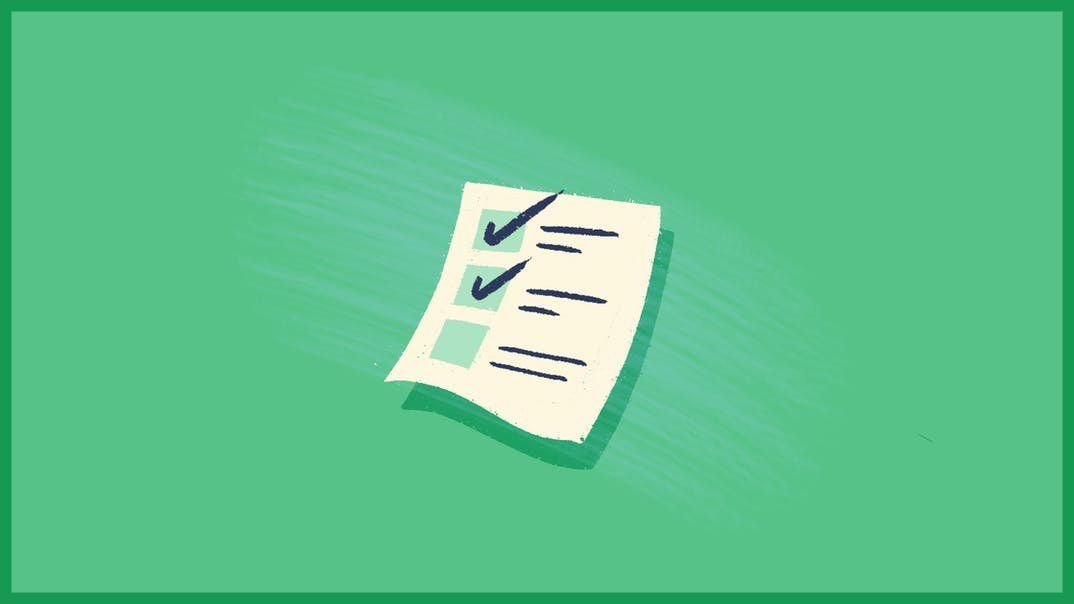When you apply for a job, it’s only natural that you’ll aim to present the best possible version of yourself. You’ll focus on your best skills and qualities, be vague and possibly exaggerate, and you’ll definitely omit your lack if not asked directly. Most job candidates do this. That is why companies today incorporate skill assessments and surveys to evaluate the candidate’s true capacities.
Today, 85% of job applicants will lie on a resume. This makes it the employer’s job to find ways to detect the top candidates. Some people are humble and will undersell their abilities, and assessment tests and surveys can help employers find them.
Hiring a new employee is important and challenging. On average, 200 candidates apply for a single position. Recruiters spend forever trying to figure out who’s the best person for the job. The pressure is big. If they make a mistake, employee turnover will cost them around 3 salaries and maybe even more, so this is not an option.
They combine tests and surveys to find the workers that are most likely to perform well in that role. To help you do the same and maximize the value of your assessments, we created this short guide for combining them with surveys.
Benefits of Skill Assessments
Skill assessments come with a set of benefits including:
- More accurate prediction for the candidate’s job performance
- Lower risks of hiring the wrong person
- Reduced unconscious bias
- Increased diversity leads to improved reputation and better company culture
- Speedy hiring process rather than a lengthy, tiring one
As you can see, skill assessment can truly streamline the hiring process. Let’s delve a bit into this.
An applicant’s resume can be too modest and general. Unless you ask the right questions, you won’t know that this candidate is the best fit for the position you are offering.
It can also be the opposite. The applicant can have a magnificent resume and application. Today with tools like the AI cv builder, resumes look better than ever. Job applicants just need to enter some of their professional details, provide the content for the job description and position, and AI will generate a captivating resume for them.
For job seekers, this saves time and a lot of effort. It’s ideal because not everyone knows how to showcase their best qualities in a resume. But for recruiters such as yourself, it brings up more responsibilities to test and evaluate the candidate. This is why you need assessments.
Since you’d be using assessments, you can get an actual perspective of how capable candidate in question is. This means more accurate predictions for their performance, as well as lower risks of hiring an inadequate candidate just because their resume looked well.
Bias based on age, race, gender, affinity, and other factors can creep along even if this wasn’t your attention. This will help you hire fairly and avoid legal problems like class action lawsuits or harm to your company’s reputation.
Assessment tests are neutral and remove the human element from the equation. This means that the tools you use will promote diversity in your company, helping it grow as a healthy, inclusive workplace.
Assessments can make the hiring process much faster. Imagine this – recruiters don’t have to sit for days pouring through hundreds of resumes. The tools prepare graded lists and narrow down the choices to the top applicants for recruiters.
Now, this doesn’t mean that the skill assessments don’t require any work on your behalf. You still need to go through the process of planning a survey or creating a test. That’s what the next stage in our guide is – helping you streamline the testing process.
How to Conduct Skill Assessments and Surveys
There’s no reason why you should do this manually. Creating a test from scratch is hard. Creating a survey from scratch is also hard. Then there’s the process of checking all of the tests to evaluate the results.
All of this can be made simple with the right tool and templates. You can use ready tests and make minor tweaks if necessary. This should save you a large quantity of time, not to mention show you the best questions to ask for a given role. For instance, if you are looking to hire a developer, TestGorilla’s SQL test for developer asks just the right questions.
The platform is full of tests you can conduct in the pre-employment phase. They have ready tests and behavioral assessments that are fully customizable and will help your company make data-driven hiring decisions.

Keep in mind that surveys are useful for other stages of the recruitment process, too. A pre-employment survey can be useful because it will tell you what the candidate knows and thinks. But, you should also conduct some employee surveys for your existing team members. SurveyKing has ready options for you to use for this purpose.
Different Types of Skills Assessment Tests to Conduct
Hiring a professional can require one, two, or several tests depending on the nature of the job and the position you are offering. Here is a general idea of what types of skills assessment tests you might need to conduct.
Hard skills assessments
Hard skills are acquired in formal education and through training. An assessment test for hard skills will focus on how the candidate applies the knowledge obtained formally in a given situation. These tests are common for positions that require skills like coding languages, mathematical concepts, writing, and typing speed.
What will these tests tell you? When you evaluate the results from hard skills assessments, you can get an idea about the candidate’s ability to carry out typical tasks required in his or her position. Additionally, these assessments can help ensure educational compliance by verifying that the candidate has met the necessary educational standards and training requirements
Soft skills assessments
Soft skills are equally important as hard skills – sometimes even more. There are specific soft skills that are desirable for a given role. These can be anything from listening to communication to collaborating with others.
A soft skills assessment will evaluate components like personality and emotional intelligence. The results will show you if the candidate’s personality and traits fit their role and your company’s culture.
Job knowledge assessments
It’s not just important for your candidate to know how to do what they were trained to do- it’s also important that they know how to handle their tasks and the responsibilities that are specifically part of the job you’re offering. An assessment test for job knowledge will focus on how the candidate performs in different situations.
For instance, you can give the candidate an example of a real situation that happened in your company and ask them how they’d resolve it.
Interviews
There are 2 types of interviews you can conduct:
Structured – when you have ready questions
Unstructured – when you have open-ended questions that develop a rapport
Now, these assessments can come in different forms. You can send them a test to fill out or a survey where they’ll share their opinions and thoughts.
How to conduct skills assessments and maximize their value
To maximize the value of your skills assessment, you need to decide how you’ll conduct the tests. There’s a range of ways you can go to conduct an assessment. If you integrate surveys into your testing process, you can add value to the test results and give yourself more information to help your hiring decisions. Here are a few ways to do this:
Assessment of skills through reference checks
One of the ways to verify the information candidates provide in resumes and interviews is to conduct a reference check. Reference checks can be useful for many reasons. They will tell you if the candidate was honest and help you assess their potential for success. Also, they might offer additional information on the skills and knowledge that the candidate possesses.
But, did you know that you can conduct an assessment through reference checks?
The idea is to ask a referee to confirm the core skills, competencies, and tasks completed the applicant gained through previous employment. Just ask questions – this will give you all the information you need and possibly even more.
Keep in mind that employers might not be willing to dedicate a lot of time to answering your questions. They have little interest in the topic. Some might just be willing to confirm the reference and tell you a few words about the candidates.
So, keep your surveys short and to the point. Give referees a chance to say more if they wish to do so.
Targeted, specific skill assessment questions
When you attempt to evaluate a person’s soft skills, for example, how would you approach this? You’ll probably ask questions. Hard skills usually require tests and assignments, but soft skills are often based on questions.
Whatever you use surveys for, these can work best if you create questions specifically for the role at hand. Use the team’s requirements and your company’s needs as a guide. These will show you what exactly to ask.
If you have very few candidates in the last stage of the hiring process, it wouldn’t hurt to target them precisely. Ask questions related to each candidate’s specific skills and experience.
Behavioral-based questions during interviews
Interviews can tell you a lot about a candidate. During the interviews, use some behavior-based questions. These will help you understand more about the candidate’s experience and skills – and show you how they behave in given situations.
When can you ask these questions? You can do this as part of the interview process or during the reference check.
You’re ready to hire the best talent now!
Companies conduct skills assessments all the time now. This helps them hire the right person the first time around and maximizes the potential for success. However, it’s not just about testing and surveying – it’s all about doing it right. Hopefully, this guide helped you in learning how to do that.














